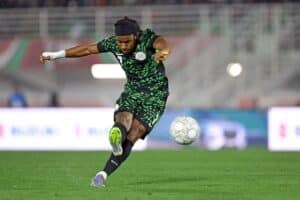South Sudanese troops have withdrawn from around the residence of powerful former army chief Paul Malong, a week after a tense standoff over his bodyguards sparked fears of clashes in the capital.
In a press statement on Sunday entitled “Misunderstanding Resolved”, army spokesman Lul Ruai Koang said a peaceful resolution had been found to a dispute over the number of bodyguards in Malong’s service.
Lul Ruai said scores of troops had been deployed around Malong’s house as he had failed to comply with an order that he release most of his government-appointed bodyguards to return to their former duties.
“Withdrawal came about after Gen. Paul accepted (a) presidential order on reduction of his bodyguards,” the army statement says.
Lul Ruai said troops were withdrawn after a “security review was undertaken which indicated lack of real security threats to the government in particular and residents of Juba in general (and) to reduce and eliminate uncertainty created by deployment of security forces.”
The move was also an attempt “to build confidence between the Government and General Paul.”
– ‘Human rights violations, corruption’ –
Malong is a hardline ethnic nationalist whose dismissal in May by President Salva Kiir had sparked fears of a clash between his supporters and troops loyal to the president, although that never materialised.
The deployment of troops around his house last Friday saw people holing up at home for fears of clashes.
Malong, who belongs to Kiir’s majority Dinka tribe, is widely regarded as the mastermind behind fighting that erupted in Juba in July 2016 that killed hundreds of people.
The clashes also crushed hopes of a power-sharing government between Kiir and Riek Machar, his former deputy turned rebel chief, who is a member of the Nuer tribe.
South Sudan has been gripped by a brutal civil war that has lasted nearly four years. Initially putting the Dinka and the Nuer against each other, the conflict has metastasised, drawing in a variety of ethnic groups and grievances.
The general, who is under house arrest, was one of three senior South Sudan officials who was hit by US sanctions in September on charges of fomenting and profiting from the civil war.
Canada followed suit last week, with Foreign Minister Chrystia Freeland saying the sanctions related to individuals “linked to human rights violations and corruption”.
South Sudan gained independence after the Christian-majority south split from the Muslim north in 2011 after a 22-year civil war that killed hundreds of thousands of people.
But the world’s youngest nation quickly fell into civil war in December 2013 after Kiir accused Machar of plotting a coup, with the conflict leaving tens of thousands dead and forcing a third of its 12 million people out of their homes.






